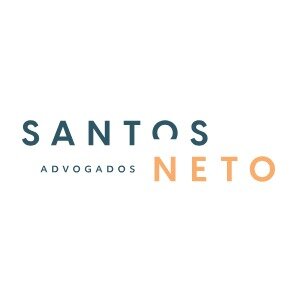Best Acquisition / Leveraged Finance Lawyers in São Paulo
Share your needs with us, get contacted by law firms.
Free. Takes 2 min.
List of the best lawyers in São Paulo, Brazil
About Acquisition / Leveraged Finance Law in São Paulo, Brazil
Acquisition and leveraged finance law in São Paulo refers to the legal framework that governs the financing of company acquisitions, especially when buyers use significant amounts of borrowed funds to purchase target businesses. São Paulo is the premier financial center of Brazil and Latin America, home to large-scale corporate transactions, mergers, and acquisitions (M&A). In such transactions, sophisticated financing structures such as bank loans, bond issuances, or structured finance products are often required. Legal professionals in this field advise buyers, lenders, and sponsors on structuring, documenting, and closing deals while ensuring compliance with regulations set by Brazilian authorities and international standards.
Why You May Need a Lawyer
Engaging in acquisition or leveraged finance in São Paulo can be highly complex, involving large sums, multiple parties, and intricate legal structures. You may need a lawyer if you are:
- Planning to acquire a business or key assets using loans or other borrowing instruments.
- A lender, private equity investor, or bank seeking to provide financing for an acquisition deal.
- Looking to structure or participate in syndicated lending or complex capital structures.
- Facing regulatory issues or approval processes before closing your transaction.
- Needing to draft or review contracts such as loan agreements, security documents, or shareholder agreements.
- Dealing with due diligence, risk assessment, or negotiation with foreign parties.
- Concerned about compliance with anti-money laundering, competition, or foreign investment regulations in Brazil.
A lawyer with experience in São Paulo's acquisition and leveraged finance market can help mitigate risks, safeguard your interests, and facilitate a smooth, legally compliant transaction.
Local Laws Overview
Acquisition and leveraged finance transactions in São Paulo operate under Brazil's legal system, which combines federal laws, Central Bank regulations, corporate statutes, and local requirements. Key aspects include:
- Corporate Law: The Brazilian Civil Code and the Corporation Law (Law 6.404/76) govern corporate structures, shareholder rights, and mergers.
- Banking Regulations: The National Monetary Council and Central Bank of Brazil issue rules on financial transactions, foreign exchange, and credit authorizations.
- Secured Transactions: Brazilian law permits various security interests (such as pledges or mortgages) to secure loans. Registration of security is critical for enforceability.
- Foreign Investment Rules: Brazil restricts or regulates certain sectors regarding foreign ownership and transfer of funds.
- Documentation: Loan and security agreements must meet specific legal requirements, often needing notarization and registration at competent registries.
- Insolvency Law: The Bankruptcy and Reorganization Law (Law 11.101/05) outlines creditor rights and restructuring procedures, important in leveraged deals.
- Tax Considerations: Complex taxation of interest, capital gains, and financial instruments may impact deal structures.
Local expertise is essential to address all regulatory and contractual nuances during acquisition or leveraged finance transactions in São Paulo.
Frequently Asked Questions
What is acquisition finance?
Acquisition finance refers to the funding provided to a buyer to acquire a target company or its assets. This typically involves loans from banks or other financial institutions, structured through various instruments.
How does leveraged finance differ from regular loans?
Leveraged finance involves borrowing funds using a high level of debt relative to equity, often for purposes like mergers and acquisitions. It includes leveraged loans and high-yield bonds, usually carrying more risk but also greater potential returns.
Who are the main parties involved in an acquisition finance transaction?
The main parties typically include the buyer, the seller, lenders (such as banks or funds), advisors (legal and financial), and sometimes guarantors or sponsors backing the transaction.
Do I need regulatory approval to close an acquisition financed by leveraged debt in São Paulo?
Certain acquisitions, especially in regulated sectors (such as banking, telecom, or health care) may require approval from Brazilian authorities like CADE (the antitrust authority) or ANVISA. Foreign investment may also trigger additional requirements.
Can foreign entities participate in leveraged finance deals in São Paulo?
Yes, foreign banks and funds can provide financing for deals in São Paulo, subject to Brazil’s foreign exchange, tax, and sectoral regulations. Legal support helps ensure compliance and smooth cross-border fund transfers.
Are loans and security agreements enforceable in Brazil?
Brazilian law recognizes and enforces contracts, including loan and security agreements, when properly drafted, signed, and registered. Disputes may be subject to Brazilian courts or arbitration, depending on the agreement.
How are acquisition finance deals typically structured in São Paulo?
Structuring depends on the parties’ needs but often involves a combination of senior loans, mezzanine financing, bonds, and various security interests over assets or shares of the target company.
What are the main risks in leveraged buyouts or finance transactions?
Risks include regulatory hurdles, borrower creditworthiness, currency exposure, enforceability of guarantees, and the target’s financial performance post-acquisition.
How long does it take to close an acquisition or leveraged finance transaction?
Timing varies but often ranges from two to six months or longer, depending on deal complexity, due diligence, regulatory approvals, and negotiations.
What documents are essential for a leveraged finance deal?
Key documents include term sheets, loan agreements, security agreements, intercreditor agreements, due diligence reports, regulatory filings, and closing checklists.
Additional Resources
If you are seeking further information or need guidance on acquisition or leveraged finance in São Paulo, consider the following resources:
- Central Bank of Brazil (Banco Central do Brasil): Regulates financial operations, foreign exchange, and lending activities.
- Brazilian Securities and Exchange Commission (CVM): Oversees market conduct, disclosure, and public offering regulations.
- CADE (Administrative Council for Economic Defense): Responsible for antitrust and merger review.
- São Paulo State Commercial Registry (JUCESP): Handles business registration and filing of key corporate documents.
- Associação Brasileira das Entidades dos Mercados Financeiro e de Capitais (ANBIMA): Provides coding standards and best practices for investment and financing operations.
- Local chambers of commerce and business associations: Often offer seminars, resources, and networking for those active in M&A and finance.
Next Steps
If you are considering an acquisition or leveraged finance transaction in São Paulo, it is critical to engage a qualified lawyer familiar with cross-border and local requirements. Here is how you can proceed:
- Clearly define your objectives and gather relevant financial, corporate, and regulatory information.
- Reach out to a legal professional or law firm with recognized expertise in acquisition and leveraged finance in Brazil.
- Schedule a consultation to discuss your plans, risks, and timeline.
- Prepare to collaborate throughout due diligence, document negotiation, and closing processes.
- Stay informed about updates to Brazilian laws and regulations that may impact your transaction.
Taking these steps with legal guidance can help ensure your acquisition or leveraged finance deal in São Paulo is structured, executed, and completed in compliance with all applicable laws and best market practices.
Lawzana helps you find the best lawyers and law firms in São Paulo through a curated and pre-screened list of qualified legal professionals. Our platform offers rankings and detailed profiles of attorneys and law firms, allowing you to compare based on practice areas, including Acquisition / Leveraged Finance, experience, and client feedback.
Each profile includes a description of the firm's areas of practice, client reviews, team members and partners, year of establishment, spoken languages, office locations, contact information, social media presence, and any published articles or resources. Most firms on our platform speak English and are experienced in both local and international legal matters.
Get a quote from top-rated law firms in São Paulo, Brazil — quickly, securely, and without unnecessary hassle.
Disclaimer:
The information provided on this page is for general informational purposes only and does not constitute legal advice. While we strive to ensure the accuracy and relevance of the content, legal information may change over time, and interpretations of the law can vary. You should always consult with a qualified legal professional for advice specific to your situation.
We disclaim all liability for actions taken or not taken based on the content of this page. If you believe any information is incorrect or outdated, please contact us, and we will review and update it where appropriate.

















